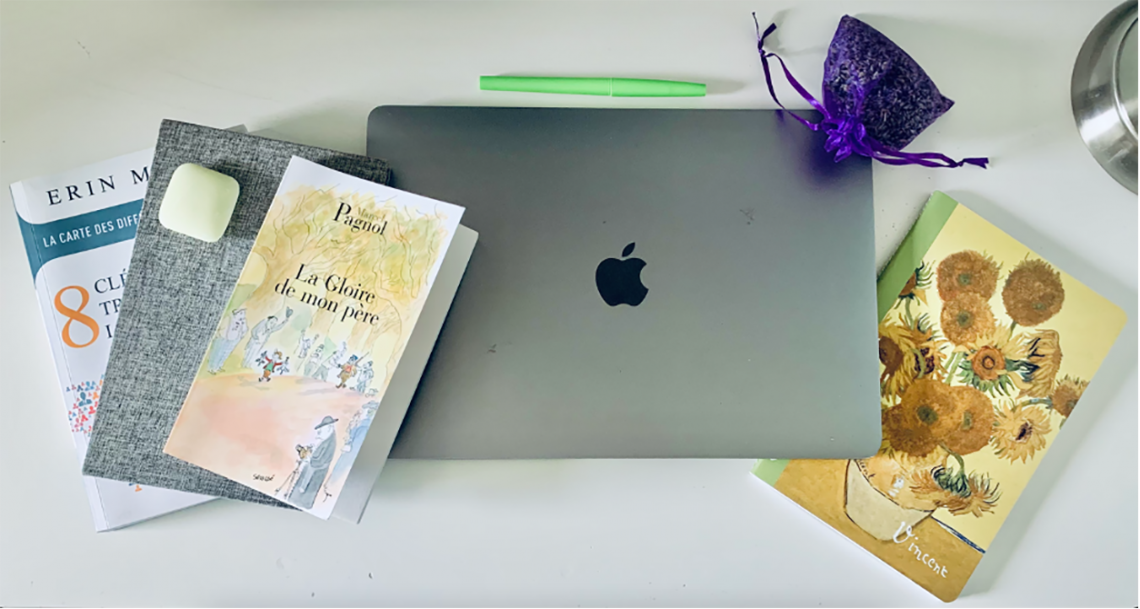
Like most of us, the COVID-19 pandemic derailed the Duke Global Education Office for Undergraduates’ (GEO) plans. GEO supports about 1,200 students on experiential global education programs across the academic year and over the summer terms in an average year. After global borders tightened in response to the COVID-19 outbreak, GEO had been unable to support experiential programs since the spring of 2020- that is until Duke in Provence Virtual this summer.
As the first virtual study away program offered at Duke, the Provence program focused on improving French language skills, gaining intercultural competencies, and providing French internship experiences. “When I set out to design this program, I wanted to give students the opportunity to work in France, and to immerse them in the language and cultures of Provence,” Professor Deb Reisinger commented, “My first impulse was to reach out to their senses: I sent each of the students a care package designed to invoke all of their senses: lavender sachets, calissons candies from Aix-en-Provence, savon de Marseille (famous scented soaps from the region), and a journal designed by Cézanne. We might not be able to go to Provence, but that didn't mean we couldn't create an environment where we would literally eat, breathe, and communicate in French.”
Cami Bowen, a rising senior dual majoring in Public Policy and French, hadn’t planned to take a virtual study away course this summer. “COVID really messed up my plans. I would have liked to do the Duke in Aix-in-Provence or Duke in Paris programs in person this summer,” noted Cami “But, I loved that this virtual program was an option, so I could get the language and cultural experience I was looking for this summer anyway.”
Students in Duke in Provence Virtual program enrolled in two courses, Aspects of Contemporary French culture: Culture and Identity in Provence (FRENCH 345A) and Travailler pour vivre: A Practicum in French (French 315A) and also participated in a virtual internship with French companies for 20 hours a week. “Classes were designed to support their internships while also providing a relevant historical and cultural context for understanding and appreciating the uniqueness of the region,” stated Reisinger, “Because of the 6-hour time difference, students complete their internship work in the mornings, with classes every afternoon.”
“I think Prof. Reisinger has done a wonderful job with the classes. I know she aimed to make it a fluid program, more of an experience rather than two distinct classes,” said Trinity rising sophomore, Madeleine Reinhard, “Two hours a day is a lot of time to fill, especially virtually, but I’ve enjoyed every minute of class. We have interesting guest speakers that cover a wide range of topics that have given me a new perspective on the region.”
Provence’s guest speakers covered a spectrum of topics important to modern Southern France including Intercultural Management and the French Economy, Van Gogh's relationship with the South, and Muslim women in Marseille. Reisinger expressed, “We have also entered into dialogue with multiple aspects of Provence's history and cultures, from classic novels by Pagnol to modern works of literature out of Marseille that examine gentrification and immigration.”
“I’m still unsure of what I want to study at Duke, but exposure to the guest speakers in this program has shown me industries and jobs that I quite frankly didn’t even know existed,” explained Reinhard, “Overall, Duke in Provence has stressed the importance of understanding other cultures and other people. No matter what industry I’m in, I think it would be really neat to work abroad or at least have some sort of cross-cultural component to my profession.”
The program’s courses also pay special attention to understanding cultural differences particularly in the context of working internationally. “The pace at which my French company works is much slower, but it is also much more thorough,” noted Bowen, “A lot of times in the United States, I’ve noticed that things are much more deadline driven. In my internship this summer, I didn’t really have deadline, but there was a focus on having my work be clean and complete.”
The virtual intercultural practicum aspect of Duke in Provence program provides students with an accessible experiential learning opportunity. Prof. Reisinger notes, “The internships give a sense of what it's like to work in an intercultural work environment, in another language, and to try out different types of work, such as marketing, research, and translation. The ease of doing this from one's home is very sustainable, from both an environmental and a monetary perspective.”